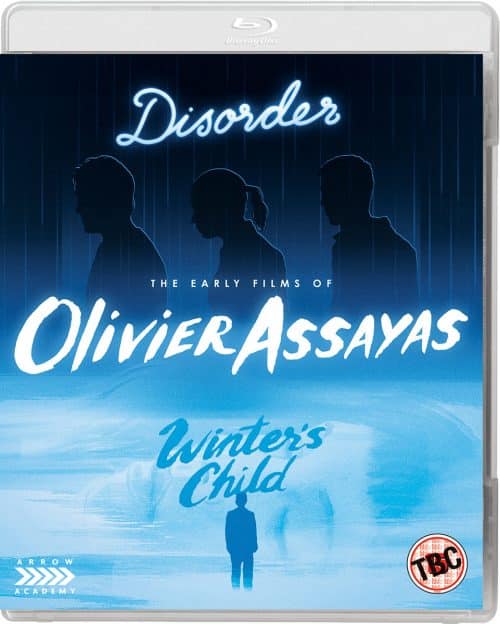
DISORDER (DÉSORDRE) (1986) ***
Dir.: Olivier Assayas; Cast: Wadeck Stanczak, Ann-Gisel Glass, Lucas Belvaux, Remy Martin, Corinne Dada, Etienne Dacla, Etienne Daho, Philippe Demarle, Juliette Maihe, Simon de Bosse; France 1986, 88 min.
After editing Cahiers du Cinema and writing scripts, among them two for Andre Techiné, Assayas’ debut feature is a playground for lost souls in limbo. Three members of a band, Yvan (Stanczak), Anne (Glass) and Henri (Belvaux, a future director himself) rob a music shop but Yvan loses his nerve and kills the owner. The tone is chaotic and it’s clear that the trio will never be the same again, haunted by their own neurosis, self-doubt and self-obsession. There all react in different ways: Anne is traumatised by the murder; Ivan and Henry go on as if nothing has happened. But Anne soon distances herself from the other two, appalled by their blatant denial. Henri and Yvan get on with the daily running their band. Drummer Xavier (Martin) loses his girl friend band member Gabirel (de Bosse), whilst Ivan falls in love with Cora (Dacla), the manager’s girl friend. Henri is finally overcome by the darkness that has literally defeated him, leaving the rest behind with their doubts, affairs and long phone calls.
What starts as a Bonnie & Clyde drama soon morphs into a classic riff on the soul-searching that would continue to appear in his work: instead of the police (who never appear) we get the inner selves of the protagonists, desperately clinging on to the idyllic days they have left behind in the music shop. Shot in London, Paris and New York, by Assayas’ regular Denis Lenoir (Winter’s Child, Demonlover), whose images are the reflections of the tormented trio, everything rushing by frenetically. Perhaps most memorable are the long sessions in the phone box. Disorder is a modern Dostoyevsky.
 WINTER’S CHILD (L’ENFANT DE L’HIVER) (1989) ****
WINTER’S CHILD (L’ENFANT DE L’HIVER) (1989) ****
Dir.: Olivier Assayas; Cast: Michel Feller, Clothilde de Bayser, Marie Matheron, Jean-Philippe Escoffey, Anouk Grinberg, Gerard Blain; France 1989, 85 min.
Winter’s Child, the director’s second feature, is a logical follow-up to Disorder. Set in a familiar milieu (the theatre), Assayas once again visits spiritual and emotional stagnation . Stephane (Feller) and Natalie (Matheron) are running out of steam as a couple. Casting around for away to revitalise their relationship they make the mistake of having a child – and this actually makes things worse. Stéhane leaves Natalie during the pregnancy and has a short affair with Sabine (de Bayser), a young set designer. Sabine likes Stéphane, but has just left a passionate relationship with actor Bruno (Escoffey). Sabine shuttles between her two lovers until Bruno rejects her once again, even asking her to leave the theatre so they can be rid of one another, once and for all. This endless chopping and changing goes on until Sabine threatens then with a gun one New Year’s Eve.
Assayas shows how adults are so often prone to emotional immaturity where affairs of the heart are concerned: narcissism predominates, a lack of commitment parades as spontaneity. Natalie’s motherhood at least allows her to progress to adulthood. These characters are brutal and self-pitying at the same time, changing their outlook on life and relationships change as often as their underwear. Winter’s Child would have benefited from the title of the Fassbinder’s first feature: Love is Colder than Death. Assayas certainly makes great progress in the three years between Disorder and Winter’s Child, the latter being an analytical portrait of self-centred emotions, mistaken for love in this brilliant La Ronde of self-deceit. AS
ON BLURAY FROM 8 OCTOBER COURTESY OF ARROW FILMS